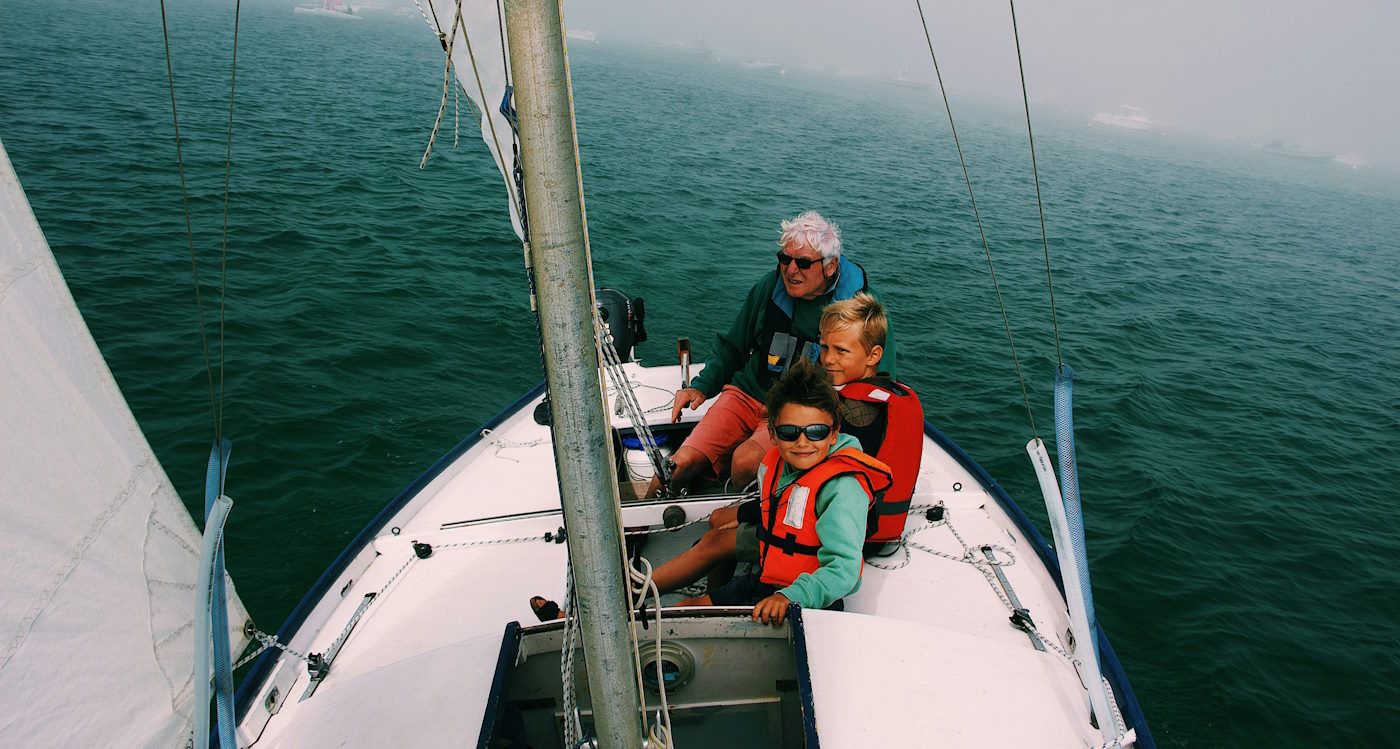Tips for Boating in Cold Weather
You may associate boats and yachts with warmer weather, but here on Vancouver Island, we don’t have that luxury year-round. Cold weather can’t stop us from bundling up, getting out onto the open water and breathing that cool ocean air. The open water is compelling – even during the colder months.
Boating during the colder months is no walk in the park. Even more so than summer, extra preparation and precaution needs to be accounted for, because everything becomes a bit more dangerous in the cold.
In this article, we’re sharing some of our best tips for cool weather cruising:
Winterize Your Boat in Advance

By preparing your boat for the next sunny season and completing the necessary steps for ‘winterization’, you’re also readying your boat to cruise safely in the winter. Once per year, winterization is critical.
Your boat has several systems that could fail, get damaged or break altogether without proper winterization. The engine is a critical component and requires flushing excess fluids, addressing wear and tear, and defogging certain components. You’ll also want to winterize the fuel tank, flush the engine cooling system and plumbing system, take some time for cleaning, and ensure your boat remains well covered.
For more on boat winterization: How to Winterize Your Boat
Keep the Life Jacket On

It goes without saying that you should have lifejackets when boating, but once the weather drops, these life-saving devices become even more important. For one it’s darker, which means accidents are more likely and your potential rescuers will have a difficult time seeing you.
Second, the colder temperatures could easily shock your system and prevent you from swimming and rescuing yourself.
If you’re well prepared with your life jacket on always, the buoyancy it provides in an emergency could save your life, regardless of whether you’re tired, injured or freezing. But which life jacket should you use?
Think About an Upgrade
First, it’s important to note a life jacket offers more protection and safety than a personal flotation device (PFD). By law they must have a minimum of 22 pounds of flotation and should carry a whistle.
SOLAS life jackets are the gold standard when out on the water, which stands for Safety of Life at Sea. These life jackets quickly turn you on your back, keeping your face our of the water and providing neck support.
The next best option is the standard life jacket, which is reversible and fits over your head (like a keyhole). Finally, the small vessel life jacket is the least effective option. These life jackets are typically zip-up style, used on kayaks, canoes, or for children.
Protect Against Mold & Mildew

When boating in the winter, another thing you need to think about is moisture. Along with moisture buildup in the engine and other boat systems, moisture can wreak havoc onboard, leading to mold and mildew growth.
Your bedding, towels, linens, cushions and other upholstered items will need to be protected. When parking your boat, ensure they’re stowed somewhere warm – ideally vacuum sealed, to prevent airflow and moisture buildup. That way everything will stay warm, fresh and mold-free when you’re ready for a winter cruise.
You’ll also want to be mindful of how you’re storing your things. If you’re stowing stuff up against the hull, be aware things will start to smell if moisture gets stuck between the hull and your stowed items. It’s best to store your things elsewhere.
The final mold consideration involves the onboard shower, which can produce a ton of condensation and unwanted humidity. If you can, take your showers at the marina whenever possible.
Ready the Batteries
Batteries do not do well in the cold, but your boat relies upon them to run the engine and power other systems on board. If the temperatures get cold enough, lead-acid marine batteries can freeze or leak power. That means extra preparation will be necessary to ensure you don’t lose power in vulnerable moments.
To start, forget about the old lore of storing your batteries in the freezer to extend their life. While this strategy may or may not be effective with smaller, household batteries, you absolutely should not do this with your boat batteries.
Before departing on a winter boat cruise, ensure your boat batteries are 100% charged and stored in a cool, dry place. This will ensure the batteries are good to go for a spin in the winter.
Prep for the Dark

Remember, if you’re sailing off into the sunset during the winter, you won’t make it very far before you’re surrounded by darkness. With shorter days and longer days, you’ll need to be prepared with reliable lighting systems to ensure good visibility. If not, you’ll need a plan for docking well in advance.
When boating, you can’t go far or do much once it’s dark, so you’ll need to be able to entertain yourself for hours before bed. Make sure you’re well stocked with books, games, movies and other entertainment before packing up and setting off.
Stay Layered Up

When you’re out on the water during the colder months, it may seem like everything is colder. But it’s not just your imagination. Moving ocean currents create a breeze, and like an air conditioning system, the breeze spreads across the water and coastal areas, removing excess heat in its path.
The tried-and-true method for staying warm in the cold weather is layering up. It’s your best defense against hypothermia, cold shock, and other heat related ailments. But not just any layers will do. You’ll want to layer up strategically, ensuring you have a base layer with the ability to wick away moisture, a middle layer to insulate your body temperature, and an exterior layer that repels water and wind.
Need to get warmer? Be sure to pack plenty of coffee, tea, soups and other warming food and drinks to keep you cozy.
If boating in the winter is something that interests you, it may be worthwhile investing in a boat that’s built for the colder seasons. Not all boats are built for the same season and certain models are specially designed for year-round use. Contact a yacht broker at Van Isle Marina and browse our selection of boats for sale.
Be sure to contact us with any questions or visit us in Sidney at 2320 Harbour Road.

